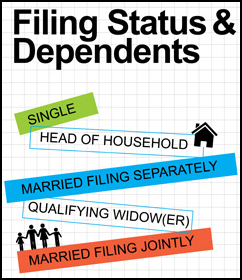 Benjamin Franklin said, the only guarantees in life are Death and Taxes.
Do I have to pay taxes after I die? I thought taxes would end when I did!
While we are earning money, we get a W2 or a 1099 and we pay INCOME TAX.
When we have investments that pay us interest income or dividend income or we sell an investment for a profit and have a capital gain we pay INCOME TAX.
When we are retired and receiving retirement benefits we may pay INCOME TAX.
And now you tell me I might have to pay taxes even after I die? If you leave too much money behind when you leave this earth, you may be subject to ESTATE TAX.
Benjamin Franklin said, the only guarantees in life are Death and Taxes.
Do I have to pay taxes after I die? I thought taxes would end when I did!
While we are earning money, we get a W2 or a 1099 and we pay INCOME TAX.
When we have investments that pay us interest income or dividend income or we sell an investment for a profit and have a capital gain we pay INCOME TAX.
When we are retired and receiving retirement benefits we may pay INCOME TAX.
And now you tell me I might have to pay taxes even after I die? If you leave too much money behind when you leave this earth, you may be subject to ESTATE TAX.
I have a Will
“But I have a will. Doesn’t that make a difference?” A will is a legal document that determines how your assets are distributed after your death. Do you remember the board game Monopoly? “Go to Jail. Go directly to Jail. Do not pass Go. Do not collect $200.” Well, with a will you “Go to Probate. Go Directly to Probate… ” What is probate? According to Wikipedia, a probate court decides the validity of a will and grants its approval to the executor The executor is the person charged with having the legal power to dispose of your assets in the manner specified in the will. The court wants to make sure your wishes are followed. And probate takes time – sometimes a lot of time and it can take money for legal fees. Creditors need to be notified and given time to present their claims. Legal notices will be published to avoid IRS problems.I Don’t Have a Will
As many as 55% of Americans die without a will. Have you ever heard that making no decision is still a decision? Families are supposed to love one another, but things can get ugly very quickly when MONEY is involved. According to Morning Star.com, “If you don’t [have a will], the state will decide how your assets are distributed, and even who will be the guardian of your minor children. And once you have a will, it’s important to make sure it’s clear and up to date.”Advantages of a Trust
Why do I want to think about a trust? What can a trust offer me that a will cannot? Who never heard of Elvis Presley? He had a will. When he died in 1988 his estate was valued at over $10 million. The probate process fees and taxes cost over $7 million! His family would have received much more if he had had a trust. A trust is private, you avoid probate and IRS problems. While a will can be contested in court, it is much harder to challenge a trust.My Experience
This discussion is based on my own experiences and learnings. I am not an attorney and am not offering legal advice here. I do heartily recommend you consult with a legal professional when drafting important documents. I have worked with attorneys and other professionals to help my clients consider all the critical points in making their important decisions. My brothers and I were so very fortunate that our own parents had a Revocable Living Trust, an RLT. Revocable means that while my parents were alive they could revoke it, they could make changes. It was a living document while they were living. When my dad died, it became irrevocable. He wasn’t alive to make changes anymore. My mother became the sole owner of what had been their joint assets. Included in their RLT were a power of attorney for each of them while they were alive. There were medical powers of attorney for each of them so their medical care could be directed as they would have wanted if they were unable to voice that themselves. The trust document was clear about their end of life wishes. Each of my parents could specify what they wanted for themselves. After our mother’s death, I was appointed by their trust to see that her wishes were carried out according to her desires. Thankfully my brothers and I did not quarrel. We were able to distribute the assets fairly. Yes, there was sadness. But there was no battling. My parents did not have an estate large enough to have to pay any taxes at either death. They avoided the ESTATE TAX. But my brothers and I inherited. Did we have to pay an INHERITANCE TAX? There is no tax when you inherit property. There can be INCOME TAX if that inherited property provides you with income, like interested or dividends, like rental income, or like capital gains if you sell inherited property at a profit.The Bottom Line
Taxes do not always have to be paid at a death. But like anything else in life, it is better to have knowledge in advance so if you have a choice, you can make an informed decision and avoid IRS problems. To your lowest legal tax, Nellie Williams, EA Bullet Proof Your Taxes
0

 Did you know you are born with an income tax return filing status?
We all start off life as Single. Even if you are a twin, you are a Single taxpayer. Can a baby be a taxpayer? Did you ever hear of the Gerber Baby? The answer is “Yes.” And as an American citizen, your taxable income includes your WORLDWIDE income.
Your filing status is determined by your marital status on the last day of the calendar year. When you marry, and are married as of December 31st, you will generally choose Married Filing Jointly. Now your taxable income includes the worldwide income of both husband and wife.
One of my clients asked, you mean if I get married on December 31st, I am treated as I was married ALL YEAR? And the answer to that question is YES. Maybe you want to marry on December 31st, but wait until after midnight to say “I DO!” and sign the license on January 1st. With planning you can choose the year you begin your joint return.
One thing I want you all to know: “Marry the man (or the woman) and you marry their tax troubles, too.” So be sure you know all the facts and enter into this new partnership, this new joint venture, with your eyes open.
Maybe you are part of an alternative lifestyle – part of a committed couple. Registered Domestic Partners of same-sex couples may have special choices for their state’s return, but not for the federal return. The Internal Revenue Service will still expect a separate income tax return for each of you.
Some couples resist government intrusion into their personal lives and choose not to obtain the required state license to become married in the eyes of the law. They just share their love and share their lives. This is not a forum for the discussion of common law marriage (which is governed by your state), but the married filing status is reserved to the lawfully wedded couple.
Sometimes there is trouble in paradise. Couples separate. When a married couple is still married, but living apart, they may choose Married Filing Jointly OR Married Filing Separately. If you are legally separated, have a court-issued order of separation, but are still talking to each other, you may be better off tax-wise to continue to share information and file a joint return.
If you do choose Married Filing Separately, or are forced into Married Filing Separately because your spouse is not available to (or refuses to) sign a joint tax return, you will lose some of the tax benefits available on a joint return. Some of those many lost benefits include, among others, some tax credits and some education deductions. If one spouse itemizes, the other spouse MUST itemize and
Did you know you are born with an income tax return filing status?
We all start off life as Single. Even if you are a twin, you are a Single taxpayer. Can a baby be a taxpayer? Did you ever hear of the Gerber Baby? The answer is “Yes.” And as an American citizen, your taxable income includes your WORLDWIDE income.
Your filing status is determined by your marital status on the last day of the calendar year. When you marry, and are married as of December 31st, you will generally choose Married Filing Jointly. Now your taxable income includes the worldwide income of both husband and wife.
One of my clients asked, you mean if I get married on December 31st, I am treated as I was married ALL YEAR? And the answer to that question is YES. Maybe you want to marry on December 31st, but wait until after midnight to say “I DO!” and sign the license on January 1st. With planning you can choose the year you begin your joint return.
One thing I want you all to know: “Marry the man (or the woman) and you marry their tax troubles, too.” So be sure you know all the facts and enter into this new partnership, this new joint venture, with your eyes open.
Maybe you are part of an alternative lifestyle – part of a committed couple. Registered Domestic Partners of same-sex couples may have special choices for their state’s return, but not for the federal return. The Internal Revenue Service will still expect a separate income tax return for each of you.
Some couples resist government intrusion into their personal lives and choose not to obtain the required state license to become married in the eyes of the law. They just share their love and share their lives. This is not a forum for the discussion of common law marriage (which is governed by your state), but the married filing status is reserved to the lawfully wedded couple.
Sometimes there is trouble in paradise. Couples separate. When a married couple is still married, but living apart, they may choose Married Filing Jointly OR Married Filing Separately. If you are legally separated, have a court-issued order of separation, but are still talking to each other, you may be better off tax-wise to continue to share information and file a joint return.
If you do choose Married Filing Separately, or are forced into Married Filing Separately because your spouse is not available to (or refuses to) sign a joint tax return, you will lose some of the tax benefits available on a joint return. Some of those many lost benefits include, among others, some tax credits and some education deductions. If one spouse itemizes, the other spouse MUST itemize and  Did you know the Internal Revenue Service has a name for taxpayers who do not file their required income tax returns? Is that you? Do you owe the IRS a tax return? Are you a NON-FILER?
If you file your individual income tax return on or before April 15th (the usual due date for 1040 tax returns) then you have filed TIMELY. If you file a special form you can REQUEST an automatic extension. But you must ask for this extension. And when you ask for the extension you will automatically be given an additional 6 months to file the paperwork. This extension does not give you more time to pay your tax. If you owe the IRS money, you want to pay that before April 15th to avoid penalties and interest. There are a lot of rules about paying your tax, but that is a topic for another blog.
If you have a Partnership, the due date for the Form 1065 is also April 15th. If you have a corporation, that calendar-year C or S corporate return is due on or before March 15th. Partnerships and Corporations can also request an extension that will allow them up to September 15th to file their returns. If you have a business, maybe you missed filing a quarterly employment tax return.
It is perfectly acceptable to file your returns on extension. Sometimes your circumstances will dictate you file an extension. Sometimes you make the choice to file an extension. But the key word here is FILE or submit the tax return. If you have a requirement to file and you do not file that return, you are a Non-Filer. And by putting yourself in the position of Non-Filer, you are also putting yourself in position to attract special attention of the Internal Revenue Service. This special attention is not quite a
Did you know the Internal Revenue Service has a name for taxpayers who do not file their required income tax returns? Is that you? Do you owe the IRS a tax return? Are you a NON-FILER?
If you file your individual income tax return on or before April 15th (the usual due date for 1040 tax returns) then you have filed TIMELY. If you file a special form you can REQUEST an automatic extension. But you must ask for this extension. And when you ask for the extension you will automatically be given an additional 6 months to file the paperwork. This extension does not give you more time to pay your tax. If you owe the IRS money, you want to pay that before April 15th to avoid penalties and interest. There are a lot of rules about paying your tax, but that is a topic for another blog.
If you have a Partnership, the due date for the Form 1065 is also April 15th. If you have a corporation, that calendar-year C or S corporate return is due on or before March 15th. Partnerships and Corporations can also request an extension that will allow them up to September 15th to file their returns. If you have a business, maybe you missed filing a quarterly employment tax return.
It is perfectly acceptable to file your returns on extension. Sometimes your circumstances will dictate you file an extension. Sometimes you make the choice to file an extension. But the key word here is FILE or submit the tax return. If you have a requirement to file and you do not file that return, you are a Non-Filer. And by putting yourself in the position of Non-Filer, you are also putting yourself in position to attract special attention of the Internal Revenue Service. This special attention is not quite a 


 W-2G is used to report Gambling Winnings. There are different reporting requirements depending on the type of game you won. If you were the WINNER you may or may not be ahead “of the game.” To avoid an IRS inquiry, report ALL gambling winnings, whether or not you received a W2G.
You may be the luckiest person in the world. But did you know your winnings are taxable? Do you keep a record of your gambling activity? Did you know you are required to keep a log of your activity to document your gambling losses if you itemize your deductions and want to deduct those losses?
It doesn’t have to be the end of the world to keep that
W-2G is used to report Gambling Winnings. There are different reporting requirements depending on the type of game you won. If you were the WINNER you may or may not be ahead “of the game.” To avoid an IRS inquiry, report ALL gambling winnings, whether or not you received a W2G.
You may be the luckiest person in the world. But did you know your winnings are taxable? Do you keep a record of your gambling activity? Did you know you are required to keep a log of your activity to document your gambling losses if you itemize your deductions and want to deduct those losses?
It doesn’t have to be the end of the world to keep that